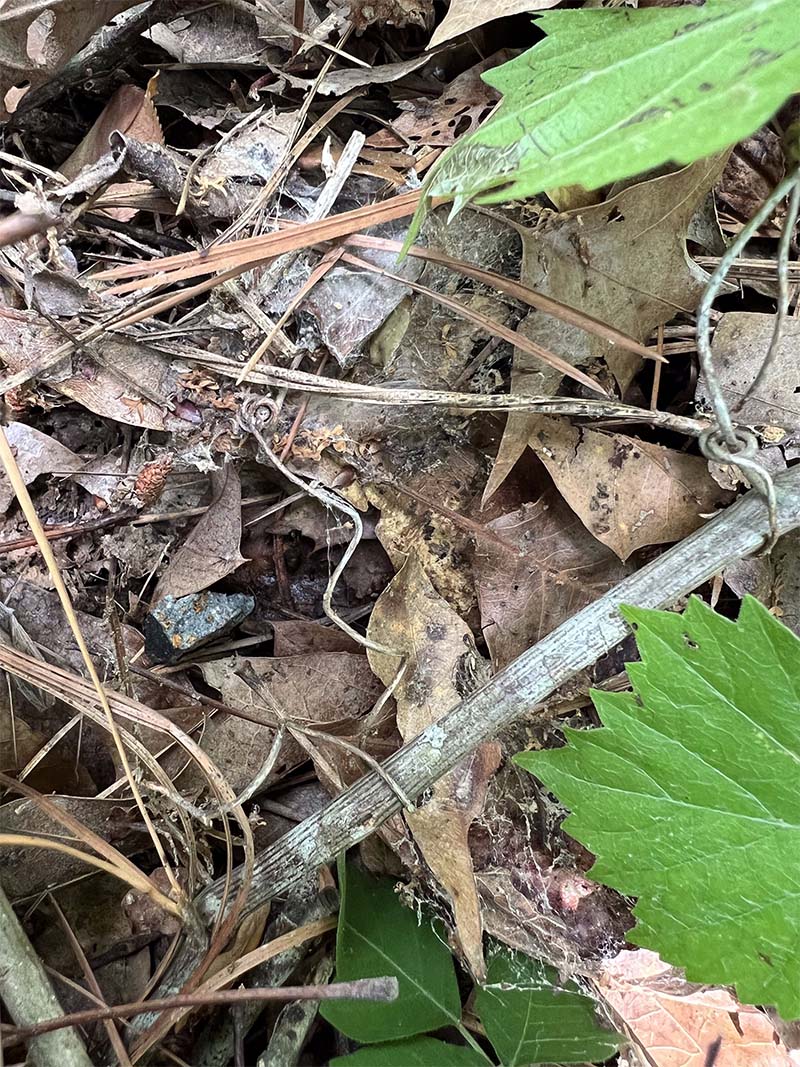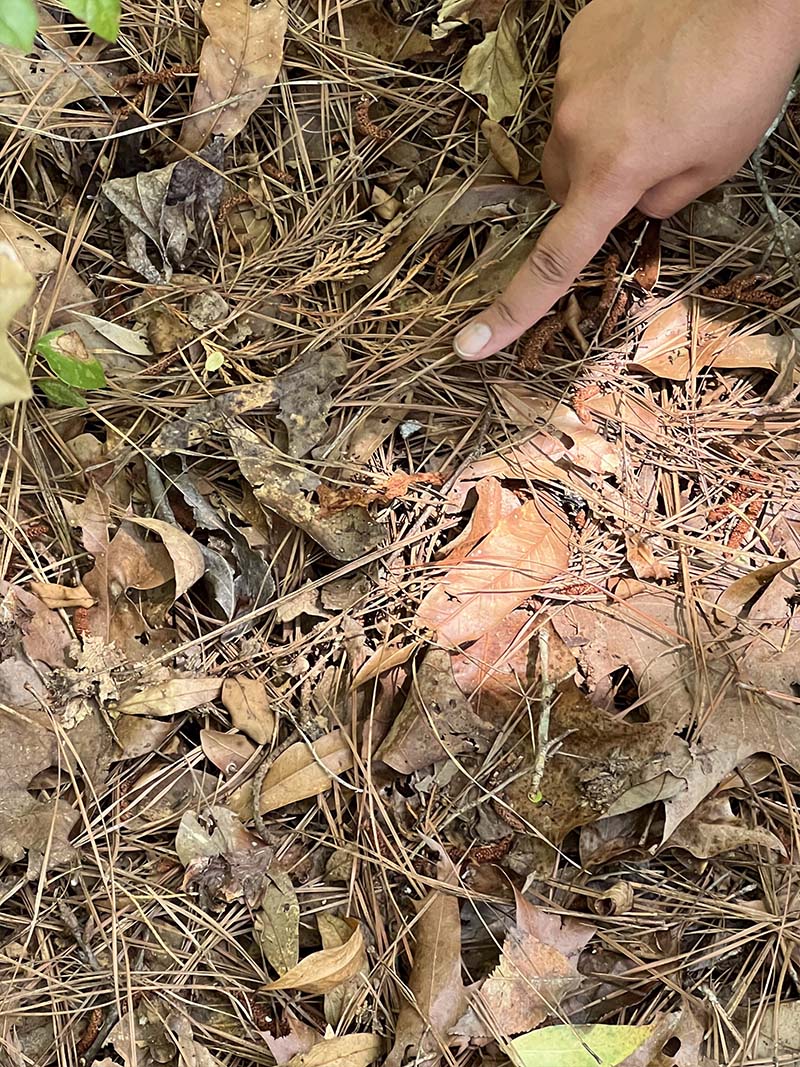Team of Scientists Recover Meteorites from the Most Recent Fall in Natchez, Mississippi
May 20, 2022

Pictured: Dr. Prajkta Mane (LPI), Dr. Paul Abell (NASA JSC), and Dr. Brendan Anzures (LPI/NASA JSC)
On April 27, 2022, residents of Arkansas, Louisiana, Mississippi, and Alabama observed a fireball and a sonic boom at 8:03 a.m. local time, suggesting a meteorite fall in Natchez, Mississippi.
The meteor was detected by NOAA weather satellites and nearby weather radars. By April 29, scientists at NASA Johnson Space Center (JSC) had produced a calculated strewn field map to show where meteorites were expected to have landed based on the satellite and radar data.
Some of the very first pristine samples were recovered by Linda Welzenbach-Fries of Rice University and Marc Fries of NASA JSC. The rapid recovery of meteorite falls is extremely important to prevent extraterrestrial materials from being contaminated by reaction with terrestrial materials.
A team of scientists, including the Lunar and Planetary Institute’s (LPI’s) Prajkta Mane and Brendan Anzures (LPI/NASA JSC), led by NASA JSC’s Paul Abell followed up the recovery efforts of this meteorite on May 13–15. With the help of local residents, approximately 8 grams of samples were recovered from the dense forests near Natchez. A close inspection of these samples suggests an ordinary chondritic material with at least two distinct lithologies. This is the fifth confirmed meteorite fall in Mississippi.
Primitive meteorites, like ordinary chondrites, are some of the oldest surviving leftovers of planet formation. They contain dust that formed approximately 4.5 billion years ago and therefore are snapshots of the earliest times in our solar system. For this reason, meteorites have been dubbed “poor man’s space probes” into the planet formation process.
The samples recovered by the LPI-NASA JSC team will be curated at the LPI. These samples are being analyzed by a variety of laboratory techniques to classify and study them.




